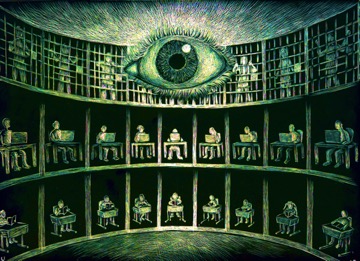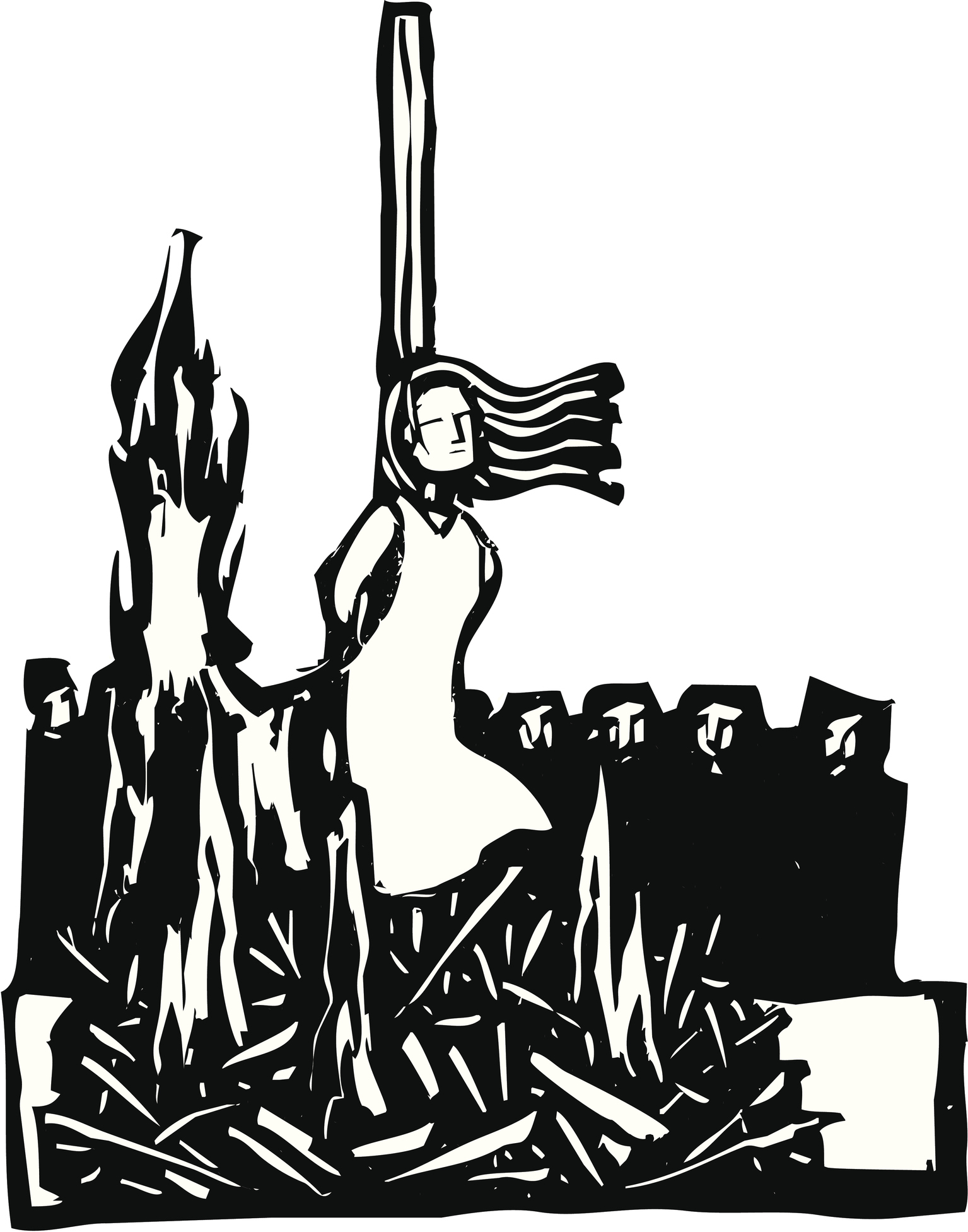Elites dissemble, but people are hungry for a new, fully free university.
The Illiberal Libertarianism of Higher Education

Our universities have replaced justice with despotism.
Several months ago, around the time of Martin Luther King Jr.’s birthday, photos of his 1962 handwritten syllabus and final exam for the course “Social Philosophy” made their annual rounds on various social media platforms. The course would, until recent times, have been a standard introduction to Western political philosophy, a basic requirement for any student in American higher education. It featured, naturally enough, readings of authors ranging from Plato and Aristotle to Kant and Hegel. On the final exam, four of the seven questions (of which students were asked to answer five) focused on classical and Christian authors—especially Plato, Aristotle, and Aquinas—with another seeking the plumb the philosophical sources of the American founding.
Today, King’s course would be viewed as “conservative,” even offensive and—in some universities—unacceptable for its lack of “diversity” due to its focus on writings by “dead white males.” For King, these readings—especially the classical and Christian sources—played a central role in the development of his critique of racial injustice. King would famously appeal to Aquinas’s theory of natural law in his 1963 “Letter from Birmingham Jail,” arguing that an unjust law is not, in fact, a legitimate law. More fundamentally, King appealed regularly to the principles of justice, a standard by which to evaluate unjust acts by tyrannical powers, understanding that such a standard was the sole legitimate basis on which both to constrain tyranny and promulgate universally just laws. King powerfully sought to invoke the universal principles of justice at the heart of the Western tradition, and those that informed the American Founding’s confrontations with tyranny, to correct the nation’s direct contradictions to those principles.
The Justice Tradition
From his familiarity with these classic and Christian texts, King understood the effort of Western tradition to limit the unjust and tyrannical exertion of political power by appeal to objective norms of justice. Those norms of justice, variously developed in the classical tradition based upon appeal to reason, or, in the Christian tradition, supplemented by appeals to faith but also fundamentally based in rational knowledge of the natural law, were understood to be the ultimate forms of limitation upon the tyrannical exercise of political power. Constitutional arrangements such as the “mixed regime” might prudentially assist in the limitation of arbitrary power, but shorn of necessary grounding in principles of justice and right, structural limitations would prove temporary at best.
For this reason, a liberal education—the education of a free person—necessarily placed heavy focus upon the study of philosophy and theology, as King’s syllabus demonstrated. From the inception of Western political philosophy, inaugurated in the work of Plato, the effort to discern the nature of justice—the basis on which to organize our political and social lives—was closely linked to a requirement to attain knowledge, wisdom, and prudence. Justice was understood to be an objective criterion of proper valuation—thus requiring extensive knowledge—as well as the weighing of often incommensurable goods, e.g., equality vs. unequal merit, or desert and mercy, thus requiring prudence and good judgment (judgment and justice are more than merely etymologically related). The question of justice was more than merely “theoretical,” for at its heart was the question of on what basis, and toward what end, public authority should be established and political power exercised. The Western philosophic tradition is, in part, a long, sometimes contentious, but largely consistent effort to ascertain the nature and requirements of justice, understood as an objective standard requiring rigorous education in the pursuit of knowledge, the aspiration to wisdom, and the cultivation of a judicious character.
In America and throughout the West, this education in liberty and its aspiration to constrain the tyrannical impulse has undergone sustained attack and has been extensively displaced. In its place, an education in “multiculturalism,” “diversity,” and so-called “grievance studies” has taken root. These approaches not only deny that there is rational recourse to universal appeals to justice, but insist that an individual or group’s perceptions of offense ought to replace appeals to any shared understanding of justice as a constraint upon tyrannical power. This effort has led inevitably to the rise of “identity politics”—the assertion of the priority of group experience of offense, harm, and injury as the criteria for assessing how to allocate political power and resources.
Because higher education has largely abandoned a grounding in philosophical and theological inquiry—indicated in part by the abandonment of those disciplines as requirements for a degree on most campuses, and, at a growing number of schools, a significant reduction of such faculty and even elimination of those disciplines—institutions are now subject to a different set of philosophical currents without comprehending their sources, their trajectory, and the profound danger they present to liberty and self-government. The dominant appeal to “harm” by identity groups indicates the displacement of “justice,” and thus, the replacement of Plato, Aristotle and Aquinas by the philosophical currents inaugurated in the 19th-century by theorists like John Stuart Mill. The consequence—increasingly visible throughout academe—is the abandonment of the effort to cultivate standards of justice. Such efforts have been replaced by a form of illiberal libertarianism that ultimately invites limitless despotism.
From Justice to “Studies”
Mill sought to replace justifications for the exercise of political power based upon appeal to objective standards of justice and right with more minimalist justifications based on the standard of perceived harm done by one person to another. Thus, laws and norms based upon an appeal to objective standards of how one ought to live were to be replaced by minimalist standards arguing that all beliefs, words, acts, and deeds should be allowed until and unless someone or some people were harmed by such activities. A hero of libertarianism, Mill’s principle promised a radical reduction of laws and even informal customary norms that existed due to moral codes based on a belief in the Right or Good or Just. In this famous passage of his 1859 essay, On Liberty, Mill notes:
The object of this Essay is to assert one very simple principle, as entitled to govern absolutely the dealings of society with the individual in the way of compulsion and control, whether the means used be physical force in the form of legal penalties, or the moral coercion of public opinion. That principle is, that the sole end for which mankind are warranted, individually or collectively, in interfering with the liberty of action of any of their number, is self-protection. That the only purpose for which power can be rightfully exercised over any member of a civilized community, against his will, is to prevent harm to others. His own good, either physical or moral, is not a sufficient warrant. He cannot rightfully be compelled to do or forbear because it will be better for him to do so, because it will make him happier, because, in the opinion of others, to do so would be wise, or even right… The only part of the conduct of anyone, for which he is amenable to society, is that which concerns others. In the part which merely concerns himself, his independence is, of right, absolute. Over himself, over his own body and mind, the individual is sovereign [my emphasis].
Of course, the need to ascertain “harm” called for a new form of knowledge, and explains the coincident rise of the social sciences in the late-19th and 20th-centuries. These disciplines were to be effective replacements for disciplines of philosophy and theology, and proposed that a science of human beings could replace the more contentious and unsettled (and apparently unsettleable) claims of religion and philosophy. The social scientific disciplines were founded in part on the view that claims of social, political, economic and, broadly, collective harm could be scientifically settled by the objective collection of social science data. This view continues to predominate in many of our contentious moral debates today, in which appeals are made to findings in sociology, economics, political science, psychology, etc., to ascertain whether certain laws or public policies ought to be pursued. Appeals to justice and right are replaced by appeal to “studies” (note the apparently objective invocation of sentences that begin, “studies show”), in order to justify the exercise of political or institutional power on the basis of harm. For instance, in debates over same-sex marriage both sides made numerous appeals to social scientific findings about positive or deleterious effects of same-sex parenting; questions concerning co-habitation revolve around appeals to data outlining its impact upon marital stability; debates over transgenderism appeal to psychological studies in the harm experienced by those prevented from (or undergoing) “transition.” The shift from justifications based in claims about morality and right—requiring a grounding in philosophy and religion—have been replaced by justifications based upon “scientifically” provable standards of harm.
The Cult of “Harm”
Yet Mill’s project was never ultimately about replacing philosophical standards of right with widely-shared, scientific objective standards of harm, but liberating individuals from the judgment of society altogether—to promote, as he called it, “experiments in living” to fulfill “utility in the largest sense, grounded on the permanent interests of man as a progressive being.” Within an increasingly individualistic ethos, any “objective” standard of “harm” came to be suspect, leading finally to the denunciation of any standard based on “scientific” findings, and instead, the ongoing elevation of subjective standards based in identity. “Harm” is increasingly determined in the eyes of the beholder—or accuser—with special advantage given to identity groups that align with Mill’s endorsement of “experiments in living.” While some individuals belonging to historically oppressed racial groups doubtless have a profound moral claim due to collective harm, the effort to align these groups with claimants of harm due to sexual identity—namely through theories of “intersectionality”—indicate the liberationist, Millian direction of our current educational and political system.
The social sciences have willingly acquiesced and now advance this project, betraying their erstwhile claim to scientific objectivity. Untethered from a philosophic or religious understanding of justice, they are now dominated by an ethos they accepted without question from the humanities, one that gives pride of place to individual autonomy—particularly sexual autonomy. Notre Dame sociologist Christian Smith has described contemporary social science as a “sacred project,” focused on the following purposes:
the emancipation, equality, and moral affirmation of all human beings as autonomous, self-directing, individual agents (who should be) out to live their lives as they personally so desire, by constructing their own favored identities, entering and exiting relationships as they choose, and equally enjoying the gratification of experiential, material, and bodily pleasures” (The Sacred Project of American Sociology, pp. 7-8).
Social scientists who submit findings contrary to this “sacred project”—such as Mark Regnerus—quickly discover that scientific claims to objective harm will be rejected if those findings do not comport with the basic purposes of this “sacred project.” The contemporary social sciences turn to individualistic orientation was predictable, since Mill’s argument was not advanced on the basis of securing a neutral political order of plural forms of life, but especially to protect “experiments in living,” a liberationist ethos that seeking the evisceration of any limitation upon expressivist liberty.
We have entered a period in which invocations of the “harm principle,” once believed to be the redoubt of libertarian freedom—a minimalist appeal that would mostly be deployed to prevent exercise of political power in the moral domain—today is invoked as an aggressive tool of domination and even tyrannical power. Witness how the “identity politics” movement has gravitated toward Millian criteria in expanding efforts to invoke institutional power on behalf of advancing its liberationist ethos. Students’ frequent resort to the language of “harm,” fear of “micro-aggressions,” the need for “trigger warnings,” requirements of “safe spaces,” and general anxiety about feeling “safe” on college campuses has pervaded the general cultural milieu. These invocations appear on the surface to be defensive, echoing minimalistic invocations of the “harm principle.” But in fact, their invocation is discernibly aggressive, specifically calling upon the intervention of public power to prevent highly subjective claims of psychological or perceived “harm” and thereby enforce an increasingly liberationist ethos.
The deepest irony is that Mill himself believed that the replacement of the criterion of “one’s own good—moral or physical” with a more minimalist standard of “harm” would promote a society based in freedom requiring the exercise of only minimal forms of coercion. What contemporary Millians have discovered is that their very ground for justifying political power—the invocation of “harm”—can be extended nearly without limit when invoked as subjective claims based in identity. These claims, in turn, are used now to deploy the power of the state (as well as institutions like universities) to dismantle every last vestige of moral norms, and increasingly are directed at delegitimizing the very expression of any such understanding or belief on the part of individuals (especially Christians). The result is the rise of a visible new form of tyranny, apparently paradoxical: an illiberal libertarianism that demands and is willing to exert power without any internal limit.
Universities that were created in the belief that a civilization must protect liberty through the cultivation of principles of Justice and Right are today in the forefront of advancing new principles of despotism. Even more ironically, such institutions, often possessing the external form of classical architecture, lack self-knowledge, or any ability to discern the deepest nature of their own commitments, having eliminated the classical and Christian philosophical and theological traditions from their midst. The question, increasingly, appears to be not how to reform such institutions—but how to defeat them.
The American Mind presents a range of perspectives. Views are writers’ own and do not necessarily represent those of The Claremont Institute.
The American Mind is a publication of the Claremont Institute, a non-profit 501(c)(3) organization, dedicated to restoring the principles of the American Founding to their rightful, preeminent authority in our national life. Interested in supporting our work? Gifts to the Claremont Institute are tax-deductible.
The cradle of multiculturalism has been sprung.
The longing to universalize the college lifestyle has turned academia into a church of hypocrisy.
Today’s power struggle is the stuff revolutions are made of.
The era of wisdom on campus is over.
Our academic institutions are rotten to the core. It’s time to replace them.






